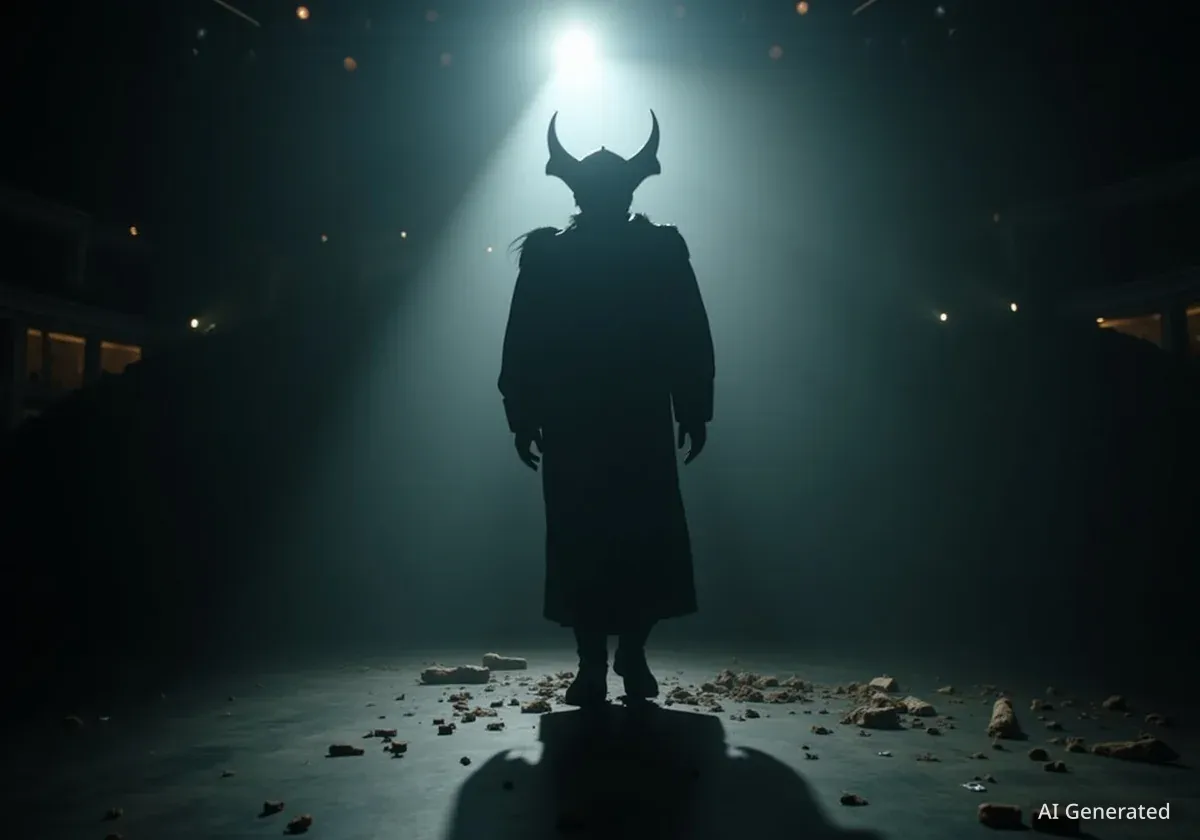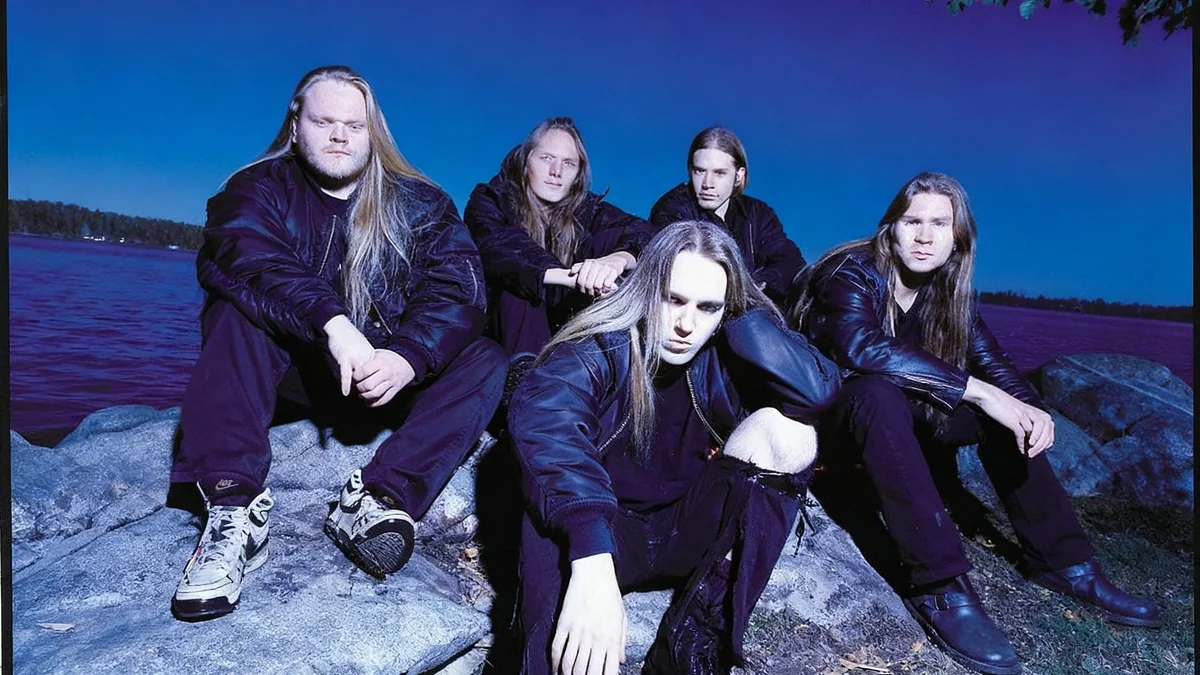Blothar the Berserker, frontman for the theatrical metal band GWAR, has responded to public criticism regarding the group's recent performance at Riot Fest. The band's stage show, which included simulated attacks on figures representing Donald Trump and Elon Musk, sparked debate online and in news outlets. Blothar emphasized that GWAR's performances are satirical and not meant to normalize violence.
Key Takeaways
- GWAR's Blothar expressed annoyance and surprise at the backlash.
- He stated the band's violence is a "cartoon" and "absurdist spectacle."
- The performances are intended as parody, not realistic depictions.
- Legal experts confirm GWAR's acts are protected by the First Amendment.
- The band has a long history of satirizing political figures from all sides.
GWAR's Response to Riot Fest Backlash
During an interview with Billboard, Blothar addressed the strong reactions to GWAR's Riot Fest set. He stated that the idea of GWAR normalizing violence is "patently absurd." Blothar admitted to feeling both annoyed and surprised by the public's response to the long-standing theatrical elements of their shows.
"We’re not millionaires that are afraid of what people are going to say when they see what we do," Blothar said. He added that the intensity of the public reaction "pissed me off." The band views their work as art, and the notion that it normalizes violence is a misunderstanding of their artistic intent.
"We’re a group of artists that makes art, and it’s really the idea that what we have done is normalizing violence… there’s nothing normal about the violence that goes on at a GWAR show. It’s a cartoon, it’s Looney Tunes."
— Blothar the Berserker, GWAR Frontman
Blothar further explained that the exaggerated nature of their performances is intentional. They do not want audiences to perceive their stage acts as realistic. Instead, GWAR aims to present a parody of violence, transforming it into a spectacle that highlights humanity's absurdities. He described GWAR's core identity as "absurdism."
Fact Check
- GWAR has been performing for over 40 years.
- Their shows often feature simulated, over-the-top violence.
- Historically, GWAR has targeted political figures from across the spectrum.
- The band has depicted the demise of every U.S. president from Ronald Reagan to Donald Trump.
The Origin of the Controversy
Videos from GWAR's Riot Fest performance quickly circulated online, fueling the outrage. One widely shared clip came from an X (formerly Twitter) account, @hottakekaren. The user posted, "Saw a friend’s video from Riot Fest—GWAR mock-beheaded Elon Musk onstage. That’s not edgy, it’s grotesque and reckless and normalizes violence against a real person. This is not okay. Riot Fest and GWAR crossed a major line."
Another X account, @libsoftiktok, also shared footage. This post highlighted the "disemboweling" of a figure representing Donald Trump. The account claimed, "This is incitement. They know exactly what they’re doing." These posts contributed significantly to the online discussion and criticism.
The controversy extended beyond social media into traditional news reporting. The New York Post ran a headline stating, "Heavy Metal Band Stage Phony Beheading of Elon Musk, Murder of Donald Trump in Shocking Festival Performance." While the article detailed some of the critiques, it also included a statement from a GWAR representative.
"Normalizing violence? Humans don’t need GWAR for that. There is nothing normal about the Looney Toon violence acted out on a GWAR stage. GWAR is absurdist spectacle. GWAR is to violence what the New York Post is to journalism. Ridiculous."
— GWAR Representative
Background Information
GWAR is known for its elaborate costumes, grotesque characters, and satirical storylines. Their performances often involve fake blood, prop weapons, and the mock killing of various figures, including politicians, celebrities, and religious icons. This theatrical approach is a cornerstone of their identity and has been consistent throughout their career.
First Amendment Protections for Artistic Expression
The debate surrounding GWAR's performance also raised questions about free speech and artistic expression. Billboard spoke with Kevin Goldberg, Vice President and First Amendment expert at Freedom Forum, to shed light on the legal aspects of the situation.
Goldberg affirmed that GWAR's artistic expression is protected. "The First Amendment protects expression in the form of music. What you’re seeing and what you’re hearing [from GWAR] is fully protected by the First Amendment, as is the right to engage in parody and satire as part of that performance," he explained.
He clarified that certain types of speech are not protected, such as "true threats." A true threat requires the speaker to intend or know that their words will make someone fear for their safety. Goldberg noted that parody and satire, due to their rhetorical and over-the-top nature, generally cannot be plausibly interpreted as actual threats.
Another unprotected area is "incitement to imminent lawless violence." However, Goldberg stated this does not apply to GWAR's performance. "That’s not what’s happening here. That’s not what they want people to do. They want people to understand that they’re making a political statement and that’s why we have this broad protection for speech that may even seem like it incites violence because we want to protect political speech. And that’s what I would say this is, political speech."
Goldberg acknowledged that in the current climate, some members of the public might take such performances more seriously, especially if they are unfamiliar with GWAR's history. He noted that GWAR might operate under the assumption of "We’ve always done it this way – but now you’re paying attention." Despite this, he firmly believes that GWAR's actions are "completely" protected by the First Amendment.
Music as a Platform for Social Commentary
GWAR is not alone in using music as a means of social or political commentary. Many rock and metal bands have incorporated messages into their songs, addressing issues from war to environmental concerns. This tradition spans decades and various subgenres.
- Black Sabbath – "War Pigs": Released in 1970, this song offered a stark anti-war message during the Vietnam era, criticizing politicians who profited from conflict.
- Rise Against – "Prayer Of The Refugee": The 2006 track and its video condemned the exploitation of immigrants and the flaws in business models that rely on human rights violations.
- Fever 333 – "Made An America": This Grammy-nominated song directly confronted systemic racism, police brutality, and government-backed social issues, using powerful hip-hop and punk elements.
- Metallica – "One": From their 1988 album, this song depicted the horrors of war through the eyes of a severely wounded WWI soldier, based on the film Johnny Got His Gun.
- Megadeth – "Peace Sells": The title track from their 1986 album challenged stereotypes about metal fans, showing a thoughtful critique of societal perceptions.
- Rage Against The Machine – "Killing In The Name": A powerful anthem against racism in policing, this 1992 song remains a symbol of protest against systemic injustice.
- Body Count – "No Lives Matter": Ice-T's band addressed the "all lives matter" retort to the Black Lives Matter movement, emphasizing the specific focus on Black lives at a critical moment.
- Testament – "Greenhouse Effect": Released in 1989, this thrash metal song warned about environmental destruction, calling mankind's actions an "environmental holocaust."
- Gojira – "Amazonia": This contemporary metal band's song highlights the destruction of the Amazon rainforest and supports indigenous rights, with proceeds going to relevant organizations.
- Lamb of God – "Memento Mori": This track critiques the constant digital overstimulation and encourages listeners to appreciate unplugged moments.
- Stray From The Path – "Goodnight Alt-Right": Released after the 2017 U.S. presidential election, this song directly condemned the alt-right movement and hate speech.
- Stick To Your Guns – "RMA (Revolutionary Mental Attitude)": This hardcore band emphasizes action over words, even undertaking humanitarian missions.
- Phinehas – "Hell Below": From their 2017 album, this song captures the anguish of the North Korean genocide and the ruthlessness of the Kim regime.
- Sharptooth – "No Sanctuary": This song reacted to the 2016 Pulse nightclub shooting, with the vocalist Lauren Kashan speaking from a queer perspective about how homophobia leads to violence.
- Fit For An Autopsy – "Black Mammoth": Released in 2017, this song protested the Dakota Access Pipeline and its threat to indigenous lands and water supply.
- Trivium – "Pull Harder On The Strings Of Your Martyr": This 2005 song depicts a tyrannical leader, exploring themes of dictatorship and oppression.
- System of a Down – "Protect the Land": Released in 2020, this song advocates for Armenian rights during their conflict with Azerbaijan over Nagorno-Karabakh.
- The Cranberries – "Zombie": This enduring song reflects on the 1993 Warrington bombings by the Irish Republican Army, expressing sorrow and outrage over the violence.
- Thrice – "Blood on the Sand": This 2016 track captures the band's frustration with blind nationalism and political strife in America.
- Jinjer – "Home Back": Hailing from Ukraine, Jinjer's Tatiana Shmailyuk conveys the harsh realities of living in a warzone and Russian aggression.
These examples demonstrate how artists across the rock and metal spectrum have consistently used their platforms to engage with and comment on significant social and political issues, much like GWAR does with its unique, theatrical approach.




